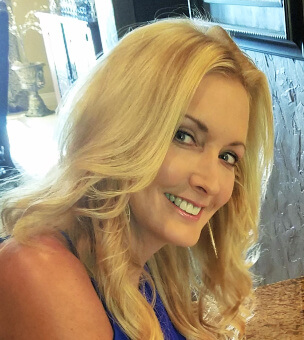844. A Day in the Life: What’s It Really Like to Be an Investigative Journalist?
Carey Gillam

“You start out just sort of covering your beat and writing about deals and you start to get to know people. And people start telling you things and you want to push more and more. I think I’m the kind of person, and most investigative journalists are the kind of people, that when somebody pushes back and tells you to stop and go away, that means you know you’re going to push harder, and you’re not going to go away. You’ve got to have tenacity.”
Carey Gillam is a veteran investigative journalist with more than 25 years of experience covering corporate news, including 17 years as a senior correspondent for Reuters international news service. She is the author of “Whitewash: The Story of a Weed Killer, Cancer and the Corruption of Science,” an exposé of corporate corruption in agriculture. The book won the coveted Rachel Carson Book Award from the Society of Environmental Journalists. Gillam works now as Research Director for the non-profit U.S. Right to Know and a columnist for The Guardian. She also is contracted as a consultant for a documentary film in the works, freelances and is working on her second book.
The Most Impactful Turning Point?
“The catalyst for me doing more investigative versus traditional reporting happened while I was covering the banking industry. I discovered that there was a group of real estate investors and banking executives who were collaborating on some fraudulent deals and swindling investment groups, including pension funds, out of millions of dollars. The deeper I dug into the facts of the story the stronger the pushback I got. I’m the kind of person that when somebody tells me to stop, to go away, I just dig in my heels and push harder to find out the truth. After months and months of gathering the hard facts about the case from an inside source, I knew we had an ironclad case. The Department of Justice got involved and people went to jail for their criminal acts. It became a very big story and was extremely gratifying work.”
The Most Powerful Lessons Learned?
1. My father loved to have spirited debates around the dinner table over public policy and cultural issues, so I was raised with social justice top of mind, along with the belief that information was the pathway to all good things.
2. Investigative journalists are the kind of people that when somebody pushes back and tells you to stop and go away, that means you are going to push harder and you’re not going to go away.
3. Successful investigative journalists must possess these characteristics:
* An innate curiosity about the world around you.
* A love of continuous exploration and learning because every story is an intricate new matrix of information on many levels that you have to figure out.
* If you aren’t utterly tenacious, this is not the occupation for you because it’s always difficult to delve into each topic, to find the “detail that matters.”
* You have to know yourself. It’s hard to connect with people from all backgrounds and occupations if you aren’t self-aware about your strengths and weakness.
* You must be able to compartmentalize between work time and personal or family time. Otherwise work will eat you alive.
On Her Bookshelf
Connecting With Carey Gillam
Website: www.careygillam.com
Facebook: facebook.com/CareyGillamAuthor/
Twitter: twitter.com/careygillam
LinkedIn: linkedin.com/in/carey-gillam-584a1913/
Instagram: instagram.com/truthaboutpesticides/?hl=en
Subscribe to the Podcast Free:
Careers: Author, Journalist


